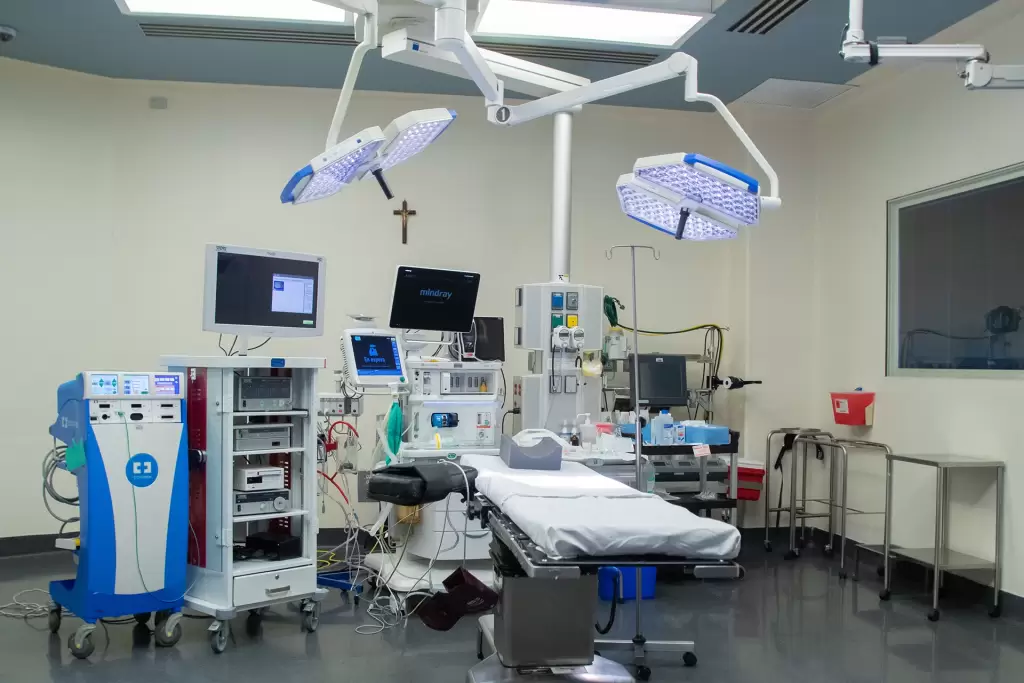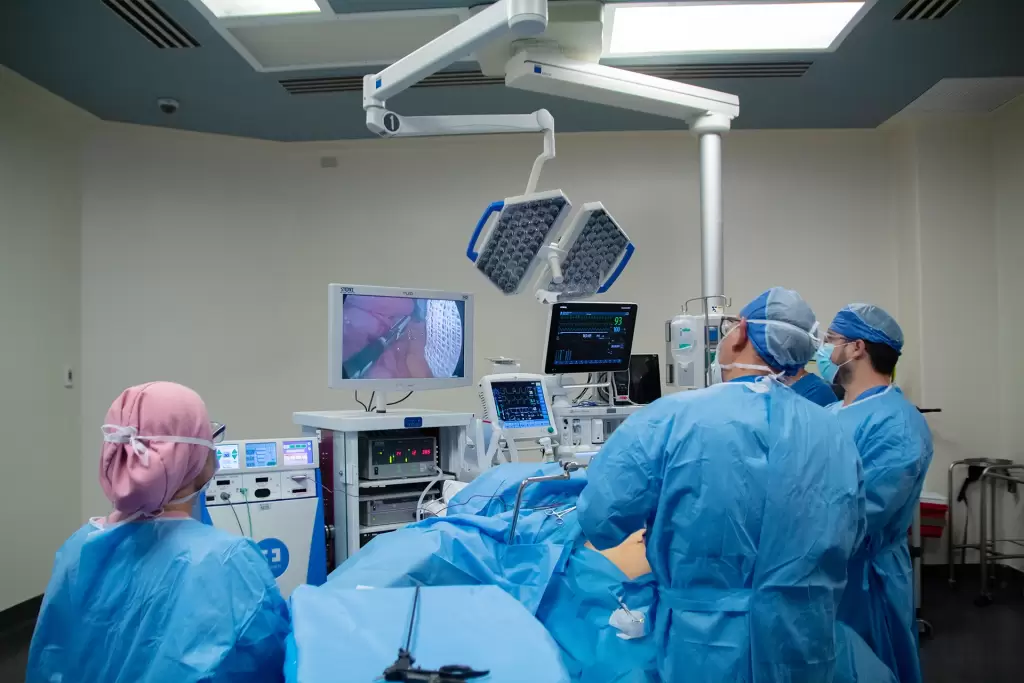Bariatric surgery procedures include gastric bypass, gastric sleeve, mini gastric bypass and gastric balloon. These operations have proven results in treating class III obesity. They also help normalize your metabolism, including blood sugar, blood pressure and cholesterol.
Many obese individuals have little success in losing weight on their own. Diet, exercise and medication often are not enough. Clearly, for some people, a different approach is warranted. Monterrey Bariatric Center offers several minimally invasive surgical options to lose weight.
What is bariatric surgery?
Bariatric surgery, also called weight loss surgery, is a category of surgical operations intended to help people with obesity lose weight. Healthcare providers may recommend bariatric surgery if other weight loss methods have failed and if obesity appears to pose a greater risk to your health than surgery.


Bariatric surgery procedures work by modifying your digestive system — usually your stomach, and sometimes also your small intestine — to regulate how many calories you can consume and absorb. They can also reduce the hunger signals that travel from your digestive system to your brain.
These procedures can help treat and prevent many metabolic diseases related to obesity, including diabetes and fatty liver disease. But weight loss surgery isn’t an easy “quick fix”. It requires preparation beforehand and long-term lifestyle changes afterward to be successful.
Weight loss surgery is an opportunity to improve both the quality and the quantity of life itself.
Dr. Jesus Abraham Vega
Why is bariatric surgery done?
Bariatric surgery is the most successful long-term treatment for class III obesity. According to the National Institutes of Health (NIH), it is nearly impossible for people with class III obesity to sustain weight loss through diet and exercise alone.
Once your body has registered your higher weight as “normal,” it continues to try to return to that weight. Bariatric surgery works by changing how your body manages what you eat, allowing healthy diet and lifestyle changes to be effective for sustained weight loss and health.
Conditions bariatric surgery treat
Obesity is associated with many chronic diseases, many of which can be life-threatening. These conditions and risk factors greatly improve after surgery and weight loss.
If you’re a candidate for bariatric surgery, you may already have or be at risk of developing any of these diseases, including:
- High cholesterol. Hyperlipidemia (high cholesterol) means your blood has too many lipids (fats) in it. These can add up and lead to blockages in your blood vessels. This is why high cholesterol can put you at risk for a stroke or heart attack.
- High blood pressure. Hypertension (high blood pressure) means the force of blood flowing through your blood vessels is too high. This wears down the walls of your blood vessels and puts you at greater risk of heart attack and stroke.
- High blood sugar. Hyperglycemia (high blood sugar) is highly linked to insulin resistance and is considered a precursor to diabetes. Left untreated, it can damage your nerves, blood vessels, tissues and organs, increasing your risk of many diseases.
- Type 2 diabetes. Excess fat storage can lead to insulin resistance, which can lead to adult-onset diabetes (type 2). The risk of developing type 2 diabetes increases by 20% for each 1 point increase on the BMI (body mass index) scale.
- Heart disease. Obesity can lead to impaired cardiac function and congestive heart failure. It can also cause plaque to build up inside your arteries and increases your risk of heart attack and stroke.
- Kidney disease. Metabolic syndromes associated with obesity, including high blood pressure, insulin resistance and congestive heart failure, are major contributors to chronic kidney disease and kidney failure.
- Obstructive sleep apnea. People with untreated sleep apnea stop breathing repeatedly during their sleep when their upper respiratory tract becomes blocked. These episodes reduce oxygen flow to the vital organs and particularly endanger the heart.
- Osteoarthritis. Having excess weight puts extra pressure on joints like your knees. This makes it more likely that you’ll develop osteoarthritis, a degenerative joint disease, or make it worse if you already have it.
- Non-alcohol related fatty liver disease (NAFLD). NAFLD occurs when your body begins depositing excess fat in your liver. It can lead to non-alcohol related steatohepatitis (NASH), chronic inflammation that can do long-term damage to your liver.
- Cancer. While the connection isn’t entirely understood, obesity is correlated with an increased risk of acquiring more than a dozen types of cancer. It also increases your risk of death from cancer by more than 50%.
Monterrey Bariatric Center medical specialists have reviewed this information. It is for educational purposes only and is not intended to replace the advice of Dr. Jesus Abraham Vega or other health care provider.



